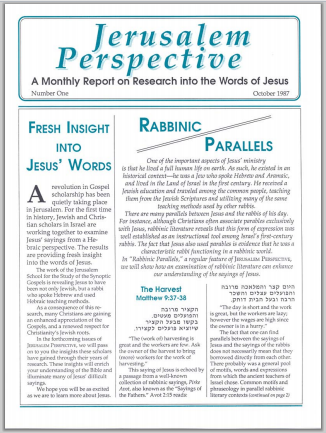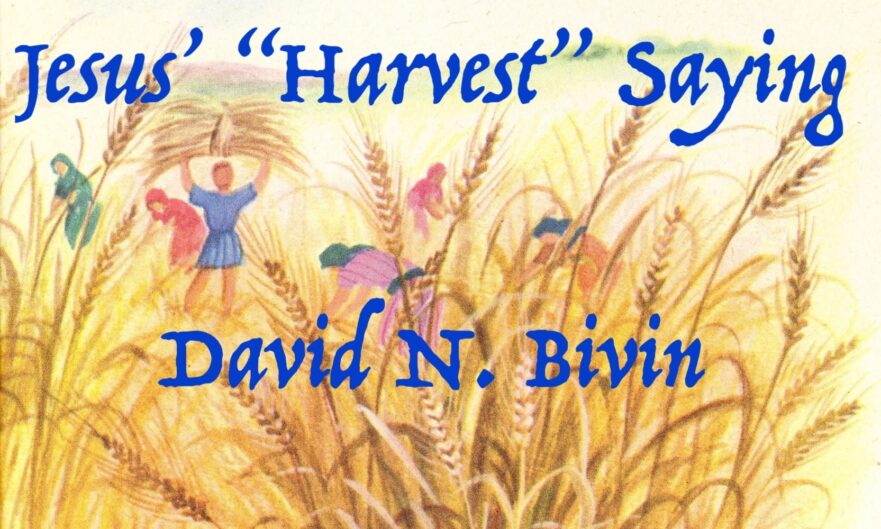This article is one of a six-part series entitled “Rabbinic Parallels.”
Updated: 3 December 2024
One of the important aspects of Jesus’ ministry is that he lived a full human life on earth. As such, he existed in an historical context—he was a Jew who spoke Hebrew and Aramaic, and lived in the land of Israel in the first century C.E. He received a Jewish education and traveled among the common people, teaching them from the Jewish Scriptures and utilizing many of the same teaching methods used by other rabbis.
There are many parallels between Jesus and the rabbis of his day. Although Christians often associate parables exclusively with Jesus, rabbinic literature reveals that this form of expression was well established as an instructional tool among Israel’s first-century teachers. The fact that Jesus used parables to teach is evidence that he was a characteristic sage functioning in a world of sages. Jesus’ efforts were directed toward bringing more and more people under God’s reign—or, in the rabbinic parlance he used, getting them into the “Kingdom of Heaven.” That was what Jesus was referring to in Matthew 9:37-38. Although he used different words, Jesus stressed the same points as the rabbinic saying in m. Avot 2:15: 1) although difficult, the work of the Kingdom of Heaven is all-important, and, 2) God is interested in the urgent completion of the work.
One of the important aspects of Jesus’ ministry is that he lived a full human life on earth. As such, he existed in an historical context—he was a Jew who spoke Hebrew, Aramaic and Greek, and lived in the land of Israel in the first century. He received a Jewish education and traveled among the common people, teaching them from the Jewish Scriptures and utilizing many of the same teaching methods used by other sages.
There are many parallels between Jesus and the other sages of his day. For instance, although Christians often associate parables exclusively with Jesus, rabbinic literature reveals that this form of expression was well established as an instructional tool among Israel’s first-century teachers. The fact that Jesus also used parables is evidence that he was a characteristic Jewish sage functioning in a world of sages and disciples.
The following example will demonstrate how an examination of rabbinic literature can enhance our understanding of a saying of Jesus:
ὁ μὲν θερισμὸς πολύς, οἱ δὲ ἐργάται ὀλίγοι· δεήθητε οὖν τοῦ κυρίου τοῦ θερισμοῦ ὅπως ἐκβάλῃ ἐργάτας εἰς τὸν θερισμὸν αὐτοῦ. (Matt 9:37-38)
The Greek reads literally:
The [work of] reaping is much, but the workers are few. Beg, therefore, the lord of the reaping to throw out [more] workers for his reaping.
Paid Content
Premium Members and Friends of JP must be logged in to access this content: Login
If you do not have a paid subscription, please consider registering as a Premium Member starting at $10/month (paid monthly) or only $5/month (paid annually): Register
One Time Purchase Rather Than Membership
Rather than purchasing a membership subscription, you may purchase access to this single page for $1.99 USD. To purchase access we strongly encourage users to first register for a free account with JP (Register), which will make the process of accessing your purchase much simpler. Once you have registered you may login and purchase access to this page at this link:
To read the next article in the Rabbinic Parallels series, click here.

































































































